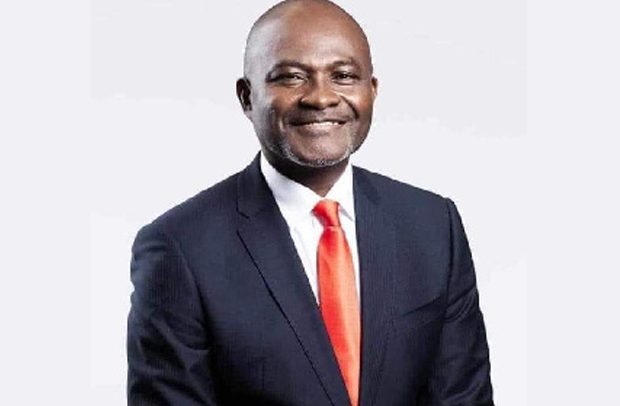Kennedy Agyapong
New Patriotic Party (NPP) flagbearer candidate, Kennedy Ohene Agyapong, has outlined an ambitious plan to transform the country by relocating selected ministries and their agencies from the capital, Accra, to other regions.
Speaking during his campaign tour in Salaga North, he explained that the country cannot achieve a balanced development when government institutions, economic activities, and opportunities remain concentrated in the capital city alone.
His policy vision is based on the belief that national progress must reflect regional growth, not just the expansion of Accra.
For decades, successive governments have spoken about decentralisation without taking the bold steps necessary to implement it. The result has been unequal development, rural-urban migration, congestion in Accra, and the slow death of many towns that once had economic promise.
Mr. Agyapong’s proposal seeks to shift the economic and administrative structure of the country by empowering regions to manage major sectors of the national economy.
In his view, decentralisation should not be a political slogan but a deliberate shift of government authority, employment opportunities, and investment infrastructure to all regions.
Under his plan, ministries will be relocated based on the natural economic strengths of the regions. For example, the Ministry of Food and Agriculture would be moved to the northern part of the country, where fertile land, livestock production, and irrigation potential can be harnessed to establish Ghana as a major food exporter within West Africa.
With the ministry and its agencies physically located there, the north would receive direct investment in agricultural processing, storage, research, and mechanisation services, creating long-term employment and reducing poverty.
Similarly, the Ministry of Energy would be headquartered in the Western Region, where most of Ghana’s oil and gas resources are located.
This would ensure proper supervision of the extractive sector, promote local content participation, and accelerate the development of energy-related industries such as petrochemical plants and gas processing parks. By linking resource governance directly to the regions that produce them, his plan seeks to bring fairness and efficiency into national resource management.
Tourism would also be decentralised under this policy. The Ministry of Tourism, Arts and Culture, he argues, could be relocated to the Volta Region to boost domestic and international tourism traffic along the eastern corridor.
With its mountains, waterfalls, beaches, rich cultural heritage and proximity to Togo, the region would become a major tourism and creative arts hub. The move would stimulate hotels, transportation services, festivals, film production, and heritage tourism businesses across the region.
This decentralisation agenda will not only reshape governance but also expand inter-regional trade. When ministries and industries are distributed across regions, new transport networks will naturally emerge, boosting commerce among cities and towns. Roads and rail lines will connect regions based on trade needs, rather than forcing all economic activities to pass through Accra. Markets will expand, warehouses and distribution centres will grow in regional hubs, and local farmers, artisans, and manufacturers will gain access to wider markets.
Relocating ministries will also reduce the growing pressure on Accra.
Mr. Agyapong argues that it makes no sense for young people from every region to migrate to Accra simply because that is where the jobs are. By moving government institutions, associated private sector jobs will follow, bringing economic life to towns that are currently ignored or treated as “dead cities.”
Tamale, Koforidua, Sunyani, Ho, Wa, Takoradi, Cape Coast, Bolgatanga and other regional capitals will experience growth through construction, business relocation, and service sector expansion.
His plan includes digital governance systems to maintain efficiency and accountability. Even if ministries are in different regions, smart administration will make coordination seamless. Files and meetings will no longer require travel to Accra, as digital management, video conferencing and integrated data systems will connect all ministries and agencies across the nation.
This policy also responds to the long-standing demand for regional equity. Every region in Ghana contributes to national development, yet many feel excluded from the benefits of state resources.
True unity, Mr. Agyapong believes, is built when citizens feel that government works for them no matter where they live. Decentralisation will strengthen national cohesion by giving regions a direct stake in national development.
This policy signals a move away from Accra-centered development toward a future where Ghana grows together—region by region, sector by sector, and opportunity by opportunity.
A Daily Guide Report


